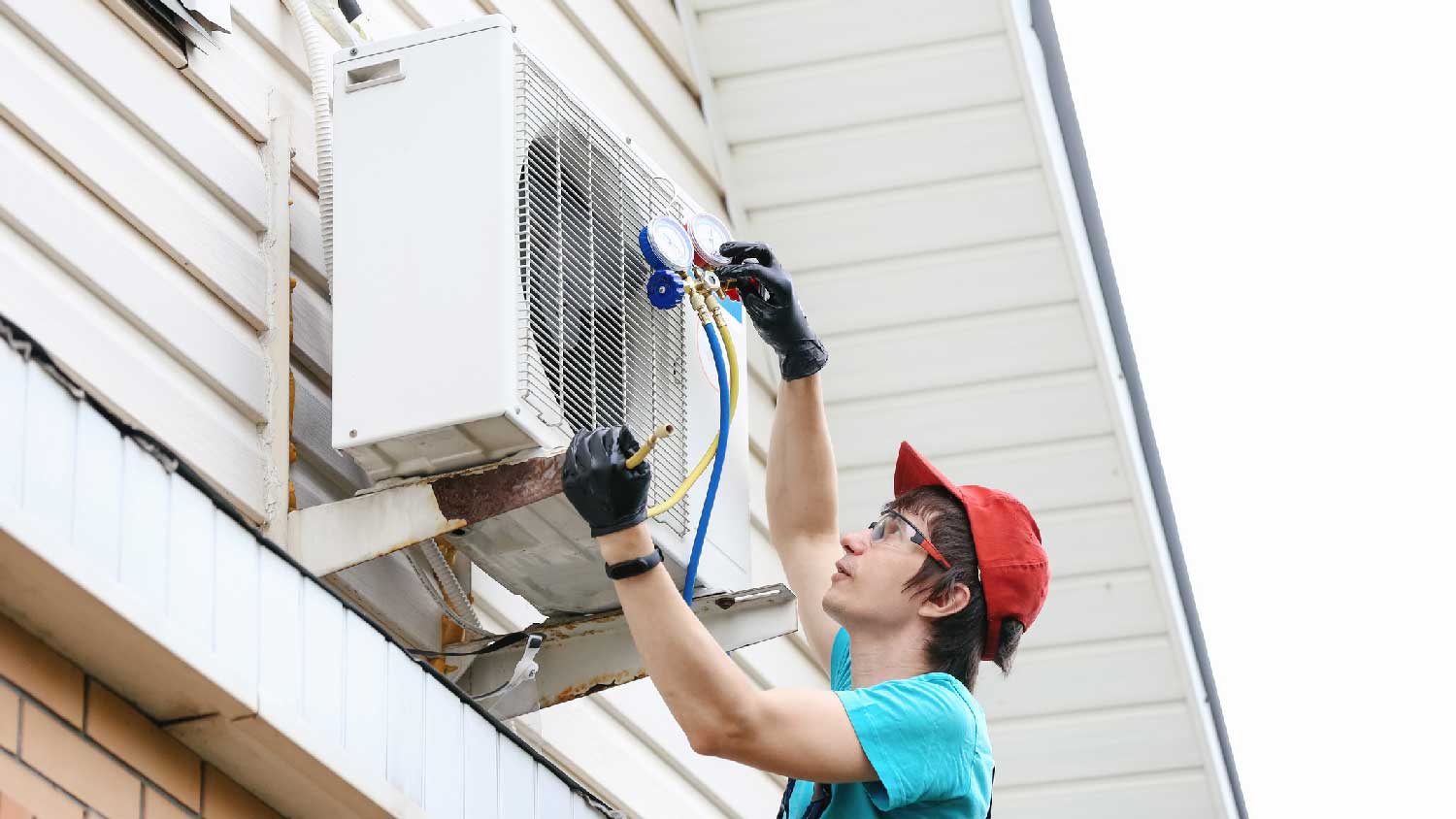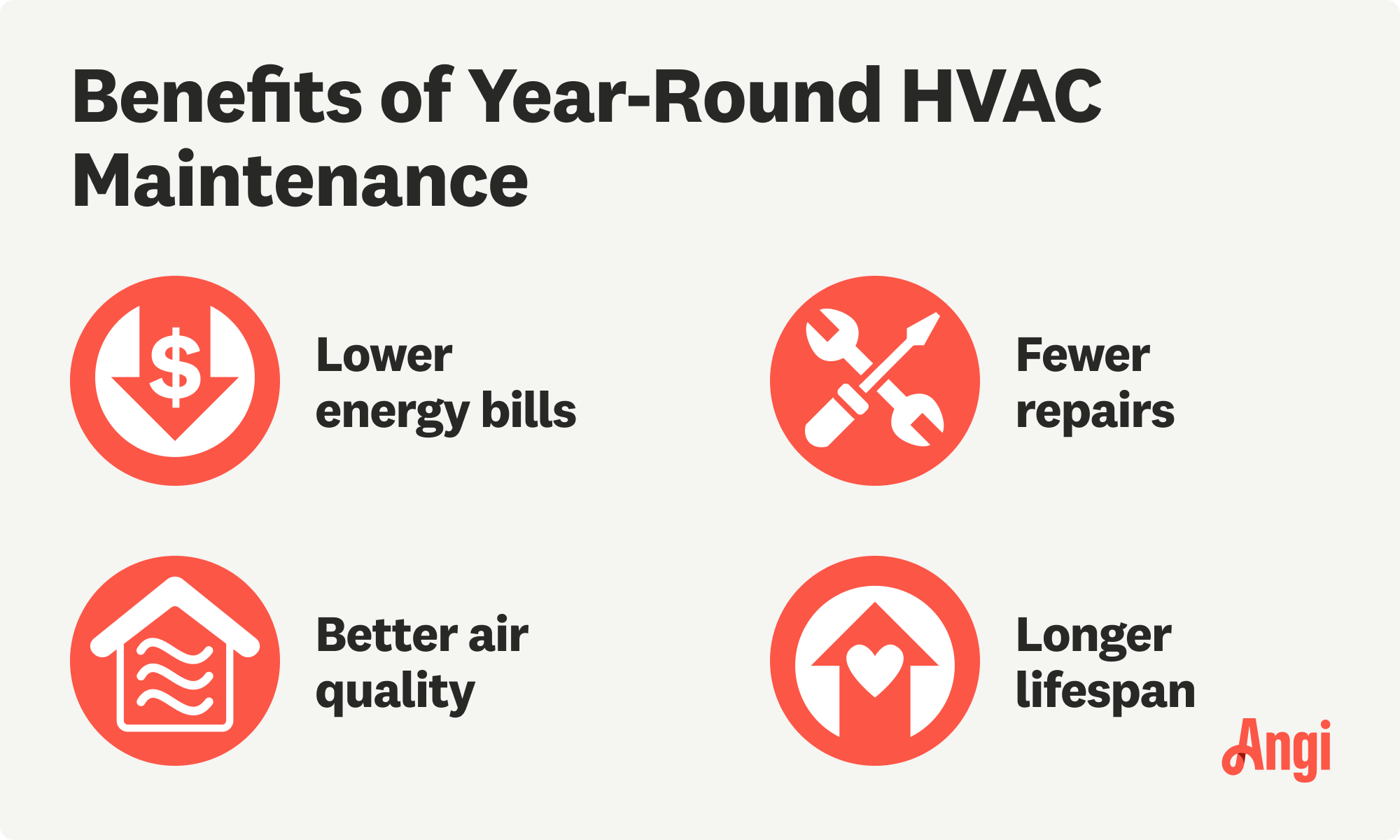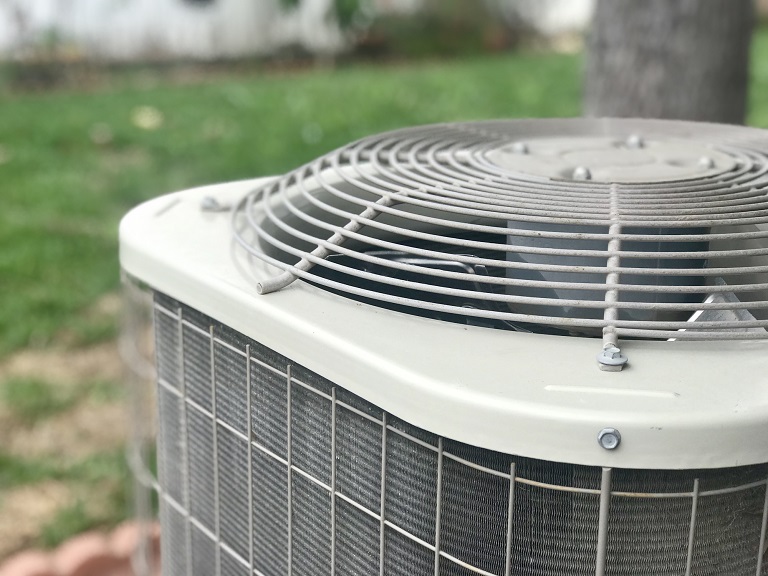
Considering a heat pump to reduce monthly heating and cooling bills? Find out geothermal heat pump costs based on system type, capacity, and other factors.
Keep an eye out for low refrigerant symptoms


Low refrigerant symptoms include hissing noises, ice on the evaporator coil, increased energy bills, and poor airflow.
You can add more refrigerant yourself or hire an AC repair specialist.
Having an HVAC professional inspect it regularly can prevent low refrigerant issues.
It’s crucial to have a properly working air conditioning unit to keep you comfortable in your home year-round. When your mini split starts showing signs of low refrigerant symptoms, you’ll likely be able to tell by the beads of sweat forming on your face.
If you’re unfamiliar with HVAC issues or don’t know if low refrigerant is causing the lack of cooling at home, our guide can help you identify common signs and decide when to hire an HVAC professional for help.
One of the first signs of low refrigerant is that your air conditioning unit is no longer cooling your space effectively. If you notice that your AC unit is running but the room or area still feels warm or humid, you may need to adjust your refrigerant levels.
If you feel warm or hot air blowing out of your AC unit, that’s another indication that your mini-split unit has low refrigerant. This is especially true if you have the temperature set low enough to blow cool air.
Unusually warm air is a surefire sign of a refrigerant leak, so you should have your unit inspected by an air conditioning repair specialist near you to determine the exact issue. These HVAC pros can pinpoint the problem, reset the refrigerant levels, and inspect the system for any additional issues.

Ironically enough, when refrigerant gets low, it can make your HVAC evaporator coil too cold and cause ice to form on top of it. If you notice extra condensation or ice forming on the evaporator coil, check the unit’s refrigerant levels to see if you need to top it off with more solution or call a professional for help.
Look below or around your AC unit to check for oily spots or stains that could indicate a refrigerant leak. Even if the leak is slow or gradual, it could significantly lower the amount of refrigerant needed to blow cool air into your home. Plus, a serious leak can be costly to fix and cause damage in the meantime. The cost to repair a coolant leak ranges from $225 to $2,000, depending on the type of unit and repair.
The EPA prohibits handling AC refrigerant without a license. This is one DIY project you shouldn’t try—having a licensed AC repair technician refill your AC refrigerant is the safest (and legal) option.
If the refrigerant is leaking or escaping your AC unit, it may make a hissing or bubbling sound when running. This sound is very noticeable, so if you hear it once or on a regular basis, you should hire an HVAC expert to inspect and repair it.
The air from your air conditioning unit should be steady and strong unless it’s low on refrigerant and unable to send cool air out as effectively. Try adjusting the temperature at different times to see how strong the airflow is, and call your local HVAC professional if you notice a weak stream of air coming out.
Was your last monthly electric bill much higher than usual with no explainable cause? Low refrigerant can cause your unit to run longer and extend its cycles to achieve the temperature you’ve set it at. This issue can result in higher energy consumption and increased utility bills, especially in seasons with extreme temperatures.

You can help keep leaks and low refrigerant issues at bay with the below steps so your wallet is free from costly repairs and your home stays cool.
Regular HVAC maintenance and cleaning can make the difference between paying for repairs or preventing them. Check the unit often for leaks, make sure the coils are cleaned regularly, and switch out air filters to make sure it’s running properly. Annual HVAC maintenance costs $100 to $550, which is well worth the cost to avoid major repairs.
A professional HVAC inspection on a yearly or bi-annual basis, especially before summer hits, can ensure you catch any red flags before the temperature climbs to 100 degrees and the unit no longer cools your space correctly. The average HVAC inspection costs $70 to $500.
If your air conditioning unit is outside, it helps to shield it from outdoor elements so it doesn’t get damaged. Whether you clear the surrounding area from objects or block the unit off with a barrier, the more measures you have in place to keep it in tip-top shape year-round.
From average costs to expert advice, get all the answers you need to get your job done.

Considering a heat pump to reduce monthly heating and cooling bills? Find out geothermal heat pump costs based on system type, capacity, and other factors.

Explore how much an AC compressor costs to install based on cost factors like it’s type, brand, size, and local labor rates.

A mini-split allows for zoned cooling, helpful for cooling spaces like garages. Learn the cost to install a mini-split unit in a garage with this guide.

Baseboard heater covers can endure a lot of wear and tear, but eventually you’ll want to replace them. Here’s the best way to switch out baseboard heater covers.

Discover the average air handler replacement cost, including labor and materials, plus expert tips to help you budget and save on your HVAC upgrade.

You’ll need to get creative if you want to run your portable AC in a windowless room. Here’s how to vent a portable air conditioner without a window.